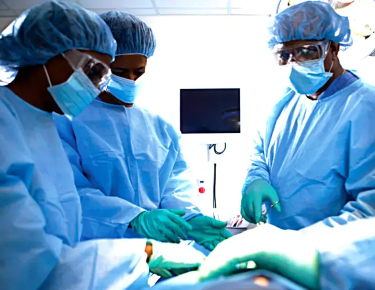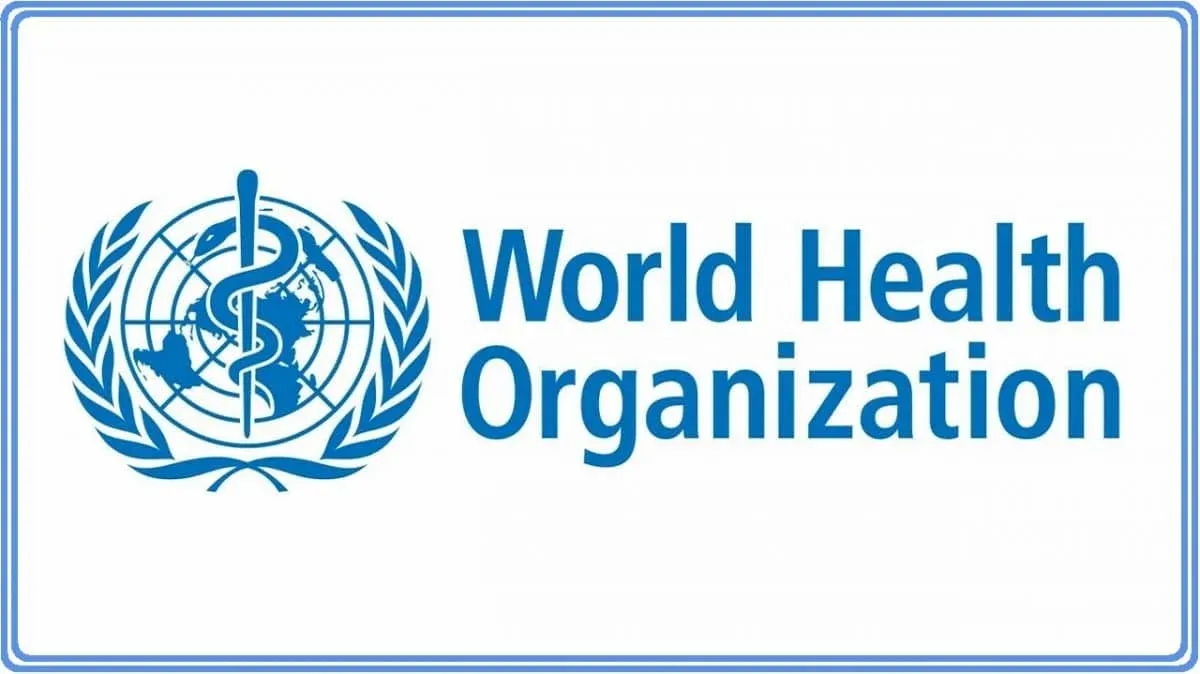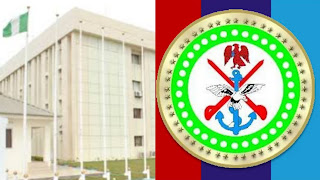
Health
Philanthropist storms Anambra communities for free medical intervention outreach
By Chuks Collins, Awka
An Abuja-based businessman, Chief Charles Nwanegbo Obi has extended his poverty alleviation and intervention scheme to residents of two Anambra communities -Uke and Umuoji.
Chief Obi who had few months ago upgraded the lives of no fewer than about four hundred (400) youths of the seventeen (17) communities constituting the Idemili North and South Federal constituency vide a multimillion naira skill acquisition training/empowerment told journalists that the gestures were his ways of appreciating God for his blessings and abundance.
The simultaneous programs were facilitated by Hon (Mrs) Chinyere Ibezim under the Women/Girl-child Poverty Eradication Initiative platform.
Obi, popularly known as Ikukuoma Idemili while addressing beneficiaries during thr flag off of the free medical outreach this afternoon at the Uke Health Centre, expressed his happiness for the large turnout. He said that it gladdens his heart to put smiles on people’s faces through humanitarian gestures.


He promised to expand and sustain his ‘Ikukuoma Idemili Foundation’ to reach more people and to ensure that youths within Idemili area became fully engaged in worthwhile ventures to take care of their immediate families.
At the Uke outreach, Chief Obi dolled out skills acquisition scholarship to a young girl, a native of Umuoji who was in the area on a visit to a relation who recently put to bed. Also at the Umuoji Civic centre, he specially recognized little Miss Chidalu Udegbe, from Dianokwu village who is a primary three(3) pupil and gave her an undisclosed amount to help in her education.
The President General of Uke Development Union, Mr Peter Onyejegbu commended Chief Obi’s benevolent disposition and appealed to other well endowed citizens to emulate him in the interest of the less privileged in the society. He prayed for more blessings for him.

Onyejegbu charged citizens to always seize the opportunity of such medical outreaches, especially when it’s free and to avoid self-medication.
Mrs Ibezim whose NGO undertakes and supervises Ikukuoma Idemili Foundation programs since inception about ten years ago, called on all citizens to approach the Women/Girl-child Poverty Eradication Initiative and be trained on one or more skills for self sustenance. She disclosed that on graduation they would be provided with takeoff grant that enables them become productive and employers of labour.

One of the beneficiaries, Mrs Esther Anumba, a 59year old housewife mother of three, from Anogu village Umuoji admitted it was the first time an individual was organising such free medical program in the community. She said, “I thank and pray for this man for desiring our good health and wellbeing. May God Almighty preserve and uplift him more…”
The lead supervising medical doctor on the team, Dr Ubboe Onyebuchi advised the villagers to takes more good care of their lifestyles, surrounding and cleanliness.
According to him, hypertension was more prevalent among the elderly, whereas cases of malaria was high among the adolescents. And such could only be checked through modification of their lifestyles.
Another in the series of Chief Obi’s poverty alleviation programs has been scheduled for December, 2022.
Health
Nigeria’s Doctors earn N2m, UK Counterparts take home N50m: The crisis driving JAPA

• Doctors-in-Training in the UK: Over N50m annually
• Residents in the US: Nearly N90m annually
•Postgraduate Year-One Doctors in Canada: Roughly N80m annually
•Interns in Australia: N85m to N120m annually
The death of Dr. Oluwafemi Rotifa, a Resident Doctor at the Rivers State University Teaching Hospital
(RSUTH) in Port Harcourt, early September 2025, is still fresh in the minds of Nigerians.
He had died of overwork after a 72-hour continuous shift. He went to the call room to rest, but never got up again — colleagues found him collapsed, beyond resuscitation.
How hard times started My Guinness World Records Journey, 4-time record holder0:02 / 1:00
His death highlighted the severe reality of overworked medical personnel in Nigeria, stretched thin by staff shortages and poor working conditions.
For him, as for many others, “patients cannot wait.”

For countless Nigerian doctors, this is the silent, grinding reality: brilliance dimmed by neglect, passion constantly at war with poverty, and resilience tested daily by a broken health system.
They carry the weight of a nation’s health on their shoulders, yet their own well-being is the first casualty. His death sent shockwaves across the medical community — a grim reminder that those who save lives are often left with no one to save them.
Inside the Wards
It has been a common occurrence, Resident Doctors collapsing midway through ward rounds.
For patients too, the system is unforgiving.
In a government owned hospital waiting hall, an elderly man with advanced diabetes waits for a doctor who may never arrive.
The recent National Association of Resident Doctors (NARD) strike had shut down the clinic, and he had already spent two nights on a bench, clutching his folder of lab results. His son whispers: “If we had money, we’d go private. But here is all we have.”
By 7:30 a.m. most government hospitals are already buzzing. For many Resident Doctors, the day begins long before sunrise — reviewing patients’ notes under flickering fluorescent lights, checking vital signs, and bracing for the consultant-led ward round.
By 8:00 a.m., the team moves bed to bed, scribbling furiously in ward registers while fielding questions, making split-second decisions, and carrying the emotional burden of lives hanging in the balance.
For Dr. Sola (real name withheld), a Junior Resident, a particular morning remains evergreen in his mind.
“We had three emergency cases arrive almost at once — a road traffic accident, a child in septic shock, and a pregnant woman with eclampsia. We had only one functioning monitor in the unit. We had to decide who got it. That kind of choice breaks you,” he told Sunday Vanguard.
After rounds, there is little pause.
Patients who have travelled hours wait at outpatient clinics, clutching files and hope.
A hypertensive grandmother, a young diabetic man with foot ulcers, and a child coughing blood-streaked sputum — each encounters a reminder that illness here often meets limited resources.
Lunch, if it comes, is a hurried snack.
Afternoons mean more ward reviews, fresh admissions, and minor procedures.
For those on call, the day blurs into night, 24 to 48 hours of non-stop emergencies: accident victims, stroke patients, cardiac arrests.
Sometimes, the call extends into 72 hours, leaving young doctors hollow-eyed, running on adrenaline alone.
“It’s not uncommon for us to catch naps even on a bench in the corridor,” said Dr. Ifeanyi, a Senior Registrar in Internal Medicine.
“You can be called back at any second, so you never really rest. It’s survival on broken sleep”, he said
It is not just the long hours.
It is the frustration of explaining to families that tests are unaffordable, the silent prayers during power cuts in the operating theatre, and the helplessness of losing patients — not from lack of skill, but from lack of oxygen, syringes, or blood.
Still, they return each day, driven by duty and the fragile hope that their sacrifice keeps the health system afloat.
“We save lives every day, but no one saves us,” said a weary resident at one of the government-owned hospitals, adjusting his scrubs before another 24-hour call.
Major problem
Despite their central role, Nigeria’s doctors remain poorly rewarded.
Under the Consolidated Medical Salary Structure, a House Officer earns between ¦ 2,040,000 and ¦ 2,640,000 annually — about ¦ 170,000 to ¦ 220,000 monthly.
A Junior Resident earns ¦ 230,000 to ¦ 300,000, while Senior Residents take home between ¦ 450,000 and ¦ 650,000.
Even Consultants, the peak of medical training, rarely cross ¦ 800,000.
By contrast, doctors, who have travelled out of the country in search of greener pasture in what is now popularly called JAPA, earn many times more.
In the United Kingdom, Doctors in Training earn between £52,000 and £74,000 annually — over ¦ 50 million at current rates.
In the United States, Residents pay average between US$60,000 and US$75,000 per year — nearly ¦ 90 million.
Canada pays Postgraduate Year-One Doctors about CA$69,000, which is roughly ¦ 80 million.
In Australia, Interns earn between AUD$65,000 and AUD$95,000, amounting to ¦ 85 million to ¦ 120 million.
The disparity is staggering.
A Nigerian Resident earns in a year what their counterparts abroad may earn in a month. Even more painful, many are owed months of arrears.
“Our grievances revolve around welfare, workload, and the demands of this profession,” said Dr. Tope Osundara, President of NARD.
“We’re owed accoutrement allowances, seven months of salary arrears; only two months have been paid so far. That’s from 2023. We’re now in 2025.”
He added that promotions are delayed even after doctors pass required examinations.
“It’s demoralising.”, Osundara said. “After you pass, you’re supposed to move up. Now, you wait almost a year before being upgraded. It has no justification.”
Burnout and Breakdown
The toll is not only financial but deeply human.
Nigeria has only about 24,000 licensed doctors serving more than 220 million people — a ratio of one doctor to about 9,000 Nigerians.
The World Health Organisation recommends one doctor per 600 people.
“We are working six to ten times harder than global standards,” said Dr. Benjamin Olowojebutu, First Vice-President of the Nigerian Medical Association, NMA.
“The system exploits our sense of duty. We sacrifice everything — sleep, family, mental health — and yet we are owed salaries. Some go months without pay.”
At one government-owned tertiary hospital, the consequences are visible.
“We’ve had colleagues faint during ward rounds. People laugh it off, but it’s not funny. It’s because they’ve been on their feet for 36 hours, sometimes with no food. Doctors are dying silently.”
Brain Drain
Faced with this bleak reality, many doctors are leaving. The United Kingdom remains the most popular destination.
According to the General Medical Council (GMC), between May and December 2023 alone, 1,197 Nigerian-trained doctors were licensed to practise in Britain, bringing the total number of Nigerian doctors in the UK to 12,198.
In 2022, another 1,616 joined the register, making Nigeria one of the largest exporters of healthcare workers to the UK.
According to a media report, over 15,000 Nigerian doctors have migrated to the UK in the past eight years, with hundreds more heading to Canada, the United States and Australia.
“It is devastating,” Olowojebutu told Sunday Vanguard. “Nigeria spends millions to train a doctor over a decade. But we are exporting them for free. Every doctor that leaves adds more weight on those left behind.”
Health System on the Brink
The impact of brain drain is already visible.
Entire departments are shrinking.
In some teaching hospitals, there are fewer than five Residents left in specialities that require at least 15 to run effectively.
Rosters are overstretched, and patient care suffers.
“It is not just about doctors leaving,” explained Osundara. “It is about the collapse of an entire pipeline. Who trains the next generation when the trainers themselves are leaving?”
Already, Nigeria’s maternal and child health indices are among the worst in the world.
The country accounts for over 20 per cent of global maternal deaths, according to WHO.
Infant mortality remains high, with one in every eight Nigerian children dying before their fifth birthday.
A weakened health workforce only worsens these grim statistics.
Strikes and Stalemates
Resident doctors, under NARD, have repeatedly resorted to strikes to demand better wages, hazard allowances, and improved hospital conditions.
But strikes come at a heavy cost — patients stranded, surgeries postponed, lives lost.
In August 2023, NARD staged a nationwide strike demanding a 200 per cent salary increase, immediate payment of arrears, and an end to the casualisation of doctors.
The government responded with threats and half-measures.
“Every time we strike, they promise. When we resume, they forget,” Osundara told Sunday Vanguard.
Frustration often boils over into strikes. During the nationwide strike over poor pay and working conditions, patients were stranded, surgeries postponed, clinics shut down.
Each strike deepens public anger — yet for doctors, it is a last resort.
“Strikes are never our first choice. But when government refuses to dialogue, and our members are collapsing from exhaustion, what options do we have?”Osundara explained.
Patients bear the brunt. Families shuttle between hospitals, often ending in private clinics they cannot afford. For the poor, it is a sentence to suffering — or death.
Sadly, the cycle repeats: doctors protest, government pledges reforms, little changes. Public sympathy often lies with the doctors, but frustration grows among patients who suffer most. Just like the just suspended NARD strike that lasted two days.
Why This Matters
According to the NMA Vice President, it is not just about doctors.
Nigeria cannot achieve universal health coverage without them.
Resident doctors handle up to 70 per cent of hospital care. They are the hands that deliver babies, the eyes that read X-rays, the voices that console grieving families.
Yet they are trapped in poverty wages, hostile work environments, and a system that seems designed to fail them.
The economic cost is enormous. Nigeria spends billions training doctors who migrate within years of qualification. Families spend fortunes seeking care abroad because the local system has collapsed. Productivity suffers as workers die young or live with untreated illnesses.
Who Will Heal the Healers?
Olowojebutu, the First Vice-President of the NMA, further described it as a silent epidemic.
“Overworked, underpaid, exhausted — many doctors now face depression, burnout, even substance abuse. We are working six to ten times harder than global standards. The system exploits our sense of duty. We sacrifice everything — sleep, family, mental health — and yet we are owed salaries. Some go months without pay.”
Back at a government-owned hospital, a weary Resident adjusts his scrubs before another 24-hour call.
“We save lives every day, but no one saves us,” he says softly, before walking back into the ward.
It is a question that hangs heavy over Nigeria’s future: If those who heal are broken, who will heal the healers?
Olowojebutu said to save Nigeria’s doctors is to save its health system.
Reform must begin with increased healthcare funding to at least 15 per cent of the national budget, as pledged in Abuja.
“Salaries and arrears must be paid promptly and reviewed regularly to reflect inflation and global competition”, he said. “The Medical Residency Training Fund must be expanded and updated to match current costs. Promotions and certifications must no longer be delayed for months.
“Doctors also need incentives — housing schemes, career development and subsidised postgraduate training — to remain in the country.
“Beyond policies, they crave dignity. Public perception must shift. Prestige does not pay bills, and exhaustion is not arrogance.
“A young doctor who seems curt after 36 hours on call is not disrespectful — he is human, stretched to breaking point.
“The story of Nigeria’s doctors is one of brilliance dimmed by neglect, of sacrifice eroded by frustration. To be a doctor here is to live in contradiction: honoured yet impoverished, respected yet neglected, overworked yet underpaid.”
He argued that unless urgent systemic reforms are implemented, the exodus will deepen, the healthcare system will deteriorate, and it will be the ordinary Nigerian who pays the ultimate price.
Saving the Nigerian doctor is not about appeasement. It is about national survival. Because in saving the healer, Nigeria is, ultimately, saving itself. (Extracted from Sunday Vanguard)
Health
One billion people living with mental disorder – WHO

The World Health Organization (WHO) has raised the alarm that one in eight people in the world is living with mental health disorders.
With a world population at over 8 billion, it means that at least 1 billion people are living with mental health disorders.
The global body said even though many countries have strengthened mental health policies and programs, greater investment and action are required to protect individuals with disorders.
Conditions, including anxiety and depression, are widespread in all nations, communities, and ages, and represent the second biggest reason for long-term disability, contributing to loss of healthy life.
The WHO, in two new reports – World Mental Health Today and Mental Health Atlas 2024, spotlight some areas of progress while revealing the gaps in tackling mental health conditions worldwide.
The findings are expected to shape countries’ strategies and discussions ahead of the 2025 United Nations Meeting on Noncommunicable Diseases and Mental Health on September 25 in New York.

Speaking on the reports, WHO Director-General, Dr Tedros Adhanom Ghebreyesus, noted that transforming mental health services is one of the most pressing public health challenges.
“Investing in mental health means investing in people, communities, and economies – an investment no country can afford to neglect,” Ghebreyesus said.
The DG reminded governments and leaders of their responsibility to act with urgency and to ensure that mental health care is treated not as a privilege, but as a basic right for all.
Health
50 percent of drugs in circulation fake – Pharmacists raise alarm

The Association of Community Pharmacists of Nigeria (ACPN), has made a shocking revelation about drugs in the Nigerian market.
According to the association, about 50 per cent of drugs in circulation are fake.
ACPN National Chairman, Pharmacist Ambrose Igwekamma Ezeh, made this declaration in a statement to herald the 44th annual national conference of the association.
Ezeh said the influx of fake drugs, foods and drinks had become a major source of worry in contemporary times in the country.
He said that currently, over 50% of drugs in circulation in the country were fake and substandard.
He lamented that various efforts had been made to address the problem but the figure kept increasing.

He added that fake drink conundrum was also assuming a dangerous dimension, as it was being championed by modern-day merchants of death.
Ezeh advised the National Assembly to, as a matter of urgency, amend the existing fake drug and unwholesome food act.
“Our usually reliable and dependable research-based efforts indicate that we are back to the days of over 50% of drugs in circulation being fake and substandard as against official figures hovering between 13% and 15%.
“The influx of fake drugs, foods, and especially drinks in Nigeria has become a major source of worry in contemporary times.
“The NASS must, as a matter of urgency, amend the existing Fake Drug and Unwholesome Food Act to become a much more potent Act of parliament,” he advised.
-

 News6 hours ago
News6 hours agoBREAKING: Enugu APC EXCO dissolved ahead of Gov. Mbah’s defection
-

 News2 days ago
News2 days agoImisi emerges winner of Big Brother Naija Season 10
-
 Former President Goodluck Jonathan
Former President Goodluck Jonathan Former President Goodluck JonathanNews1 day ago
Former President Goodluck JonathanNews1 day agoBREAKING: Court asked to stop Ex-President Jonathan from contesting 2027 election
-

 News21 hours ago
News21 hours agoForgery Scandal: Carry your cross, Enugu Govt tells embattled Minister, Uche Nnaji
-
 Uche Nnaji
Uche Nnaji Uche NnajiNews2 days ago
Uche NnajiNews2 days agoCourt delivers ruling on Minister Uche Nnaji’s bid to stop UNN from releasing academic records
-

 News3 days ago
News3 days agoHow rogue soldiers divert weapons to bandits – Sources reveal
-

 News3 days ago
News3 days ago16 Nigerian military officers under investigation, says DHQ
-

 News1 day ago
News1 day agoCertificate Forgery: Peter Obi seeks severe punishment for culprits as pressure mounts on Tinubu to sack Minister, Nnaji



















